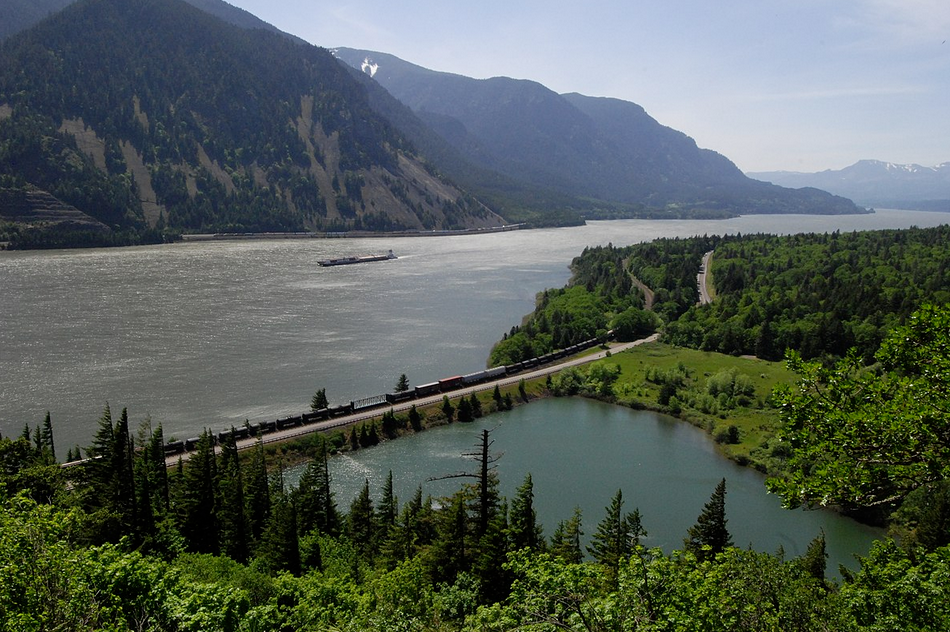Columbia River Treaty negotiations progressing to agreement-in-principle
Progress toward an agreement-in-principle has made on operational issues on the new Columbia River Treaty, after the 19th round of negotiations concluded in Portland Oct. 12-13.
The latest round of talks — including negotiators representing Canada and the United States — made progress on operational and other issues, noted a press release Wednesday from the Ministry of Energy, Mines and Low Carbon Innovation.
“The teams will continue to address compensation and bilateral treaty-ecosystem provisions in the coming weeks,” it noted.
If the agreement-in-principle is confirmed, the details of the agreement will be revealed, with the Province launching a conversation with Columbia Basin residents in B.C. and First Nations to explain the deal, as well as seeking feedback on it.
Although 60 years of Assured Flood Control is set to expire in 2024, Canada and the U.S. have been in talks to modernize the historical transboundary agreement since May 2018, covering a range of topics over the course of 19 rounds of meetings.
The key areas of interest are flood risk management, hydroelectric power and ecosystems, while Canada has also raised the issues of increasing co-ordination of Libby Dam operations and increasing flexibility for Canadian operations.
The treaty — which governs the timing and volume of water that passes through the Mica, Duncan and Hugh Keenleyside dams to prevent damaging floods and enhances hydroelectric power generation — means Canada operates with reserved space in its treaty reservoirs to reduce flood risk in the United States, but it also has ramifications in Nelson and area.
“People in the West Kootenay witness these operations as water levels fluctuate along Arrow Lakes and Duncan reservoirs and Kootenay Lake,” said Kathy Eichenberger, executive director of the provincial Columbia River Treaty team and B.C.’s lead on the Canadian Columbia River Treaty negotiation delegation.
“While there are impacts associated with those fluctuations, the treaty has enabled local GHG-free power generation along the Kootenay Canal and mitigated flooding on Kootenay Lake and below the confluence of the Columbia and Kootenay rivers in Castlegar, Genelle and Trail.”
The treaty also manages water level at certain times of the year to target fish populations in both countries for whitefish and rainbow trout (Canada) and salmon (U.S.).
The discussions between the two countries will modernize the treaty in a way that could lead to a shift in when and how much water is released from the Canadian reservoirs to address ecosystem and support objectives for Indigenous cultural values and socioeconomic interests, but still provide flood risk management and power generation.
When the treaty expires in 2024, if a new one is not struck to replace it that could trigger a more impromptu “called upon” regime, which would require the U.S. to make “effective use” of their reservoirs to manage flood risk, drafting them more deeply and frequently, before “calling upon” Canada for additional storage to prevent damaging floods.
This is not ideal for the U.S. and also impacts B.C., said Eichenberger.
“The Canadian and U.S. negotiating teams are discussing different concepts for potentially providing some form of assured flood risk management that meets the needs of both countries,” she said. “Coordinated operations for power generation are also part of these discussions.”
On the Canadian side more flexibility is being sought in the treaty for domestic operations to meet Basin interests in areas such as ecosystem enhancement, Indigenous cultural values and socioeconomic objectives.
Return of the salmon
First Nations are asking for the return of the salmon to the entire Columbia River system as part of the Columbia River Treaty negotiations, including the upper portion of the Arrow Lakes, in order to reclaim their culture.
In a Zoom meeting on May 16, 2022 for the Columbia River Treaty negotiations, Chief Keith Crow of the Smelqmix, Lower Similkameen Indian Band, called for greater consideration of salmon in the river system.
“The Columbia River Treaty has been one of the biggest infringements within our territories, infringement of the treaty that was never negotiated with us,” he said.
The benefits that Canada and B.C. have received from the treaty have been tremendous, Crow said, but at the expense of the salmon and First Nations cultural traditions.
He pointed to the Columbia River salmon restoration initiative — which started three years ago — as an example of reversing that trend.
“I think it is another major piece to bringing the salmon back up the Columbia all the way into the Upper Arrow,” he said, which is a goal of the Smelqmix Nation.
Jay Johnston of the Penticton Indian Band agreed. Although the Columbia River Treaty was formed on two points — energy production and flood control — it has never considered the effect on First Nations.
“(I)t left out not only many voices in the (Columbia) Basin and around the river, but it also left out the environment and the ecosystems and the cultural values that are so critically important to all of us,” he said.
Source: The Nelson Daily, May, 2022
Learn more:
To learn more about the Columbia River Treaty, visit: https://engage.gov.bc.ca/columbiarivertreaty/
To keep up with the latest Columbia River Treaty news, sign up for the newsletter online:
https://engage.gov.bc.ca/columbiarivertreaty/sign-up/


























